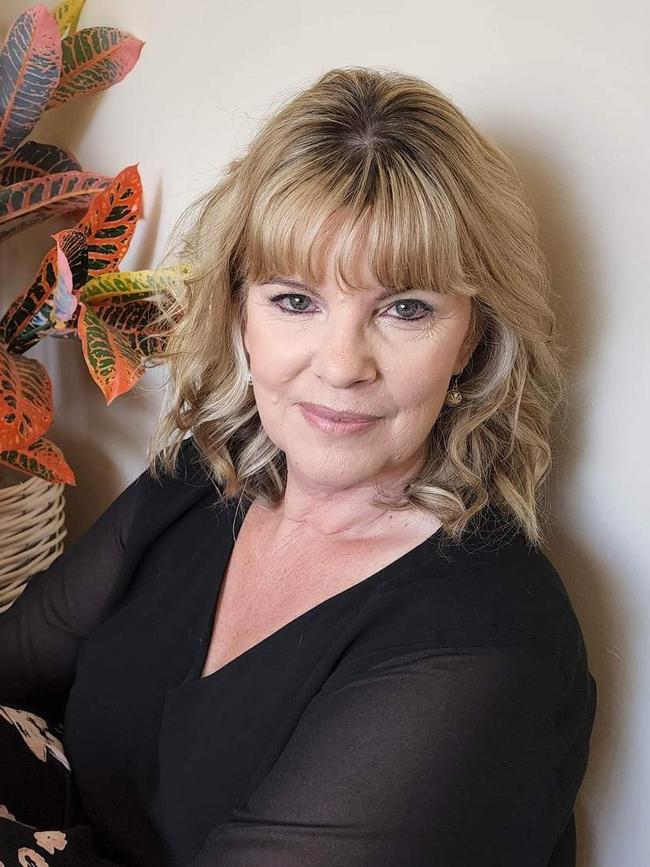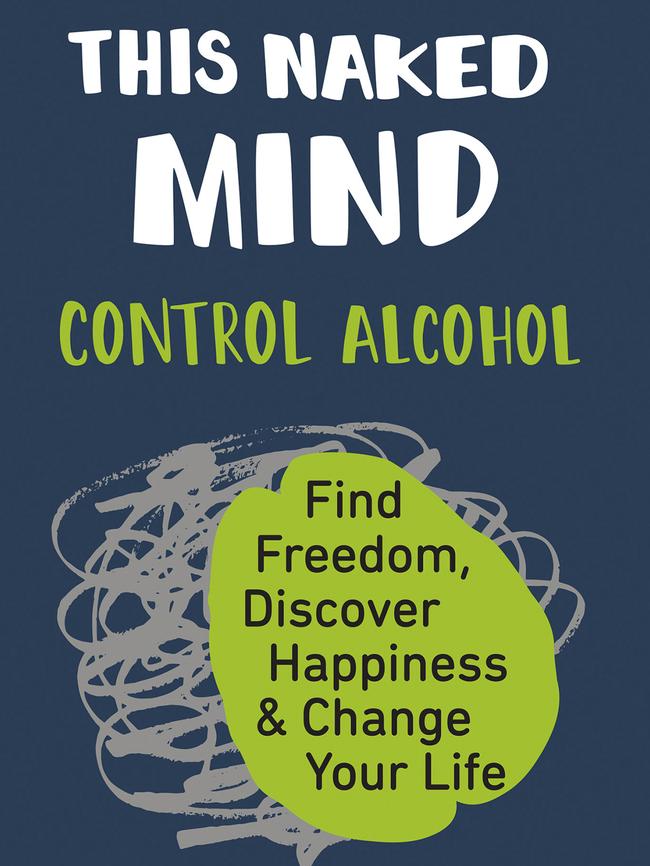Author Annie Grace explains how three easy steps can help you cut down or give up the grog
As FebFast starts today, former big drinker and now author Annie Grace warns that cutting back or giving up alcohol takes more than willpower if you want long-term results.
SmartDaily
Don't miss out on the headlines from SmartDaily. Followed categories will be added to My News.
Former big drinker Annie Grace quit a leading role in a multinational company to revamp her own relationship with alcohol, then started a movement to help others.
In her book This Naked Mind: Control Alcohol, she argues that being strong-willed alone often won’t work when we carry long-held subconscious beliefs about booze – like “alcohol helps me de-stress” or “alcohol makes me more fun” – which clash with our conscious reasons for wanting to drink less, however rational their basis: health, relationships, finance etc.
In this edited extract, she explains how to resolve this cognitive dissonance, with a technique that can work beyond alcohol: such as cutting back on junk food, gambling or screen time.
ACT: AWARENESS, CLARITY, AND TURNAROUND
“This method works to resolve the conflict and get your conscious and subconscious minds on the same page. When that happens, you get what you want with no effort.
It’s all about awareness. If you’re struggling because you’re unaware of your subconscious beliefs, then the solution is to become aware of them. Shine a light deep into the nooks and crannies of your mind and figure out what beliefs are holding you back. What beliefs are in conflict with your desire to drink less or stop drinking?
The technique I’ve developed is called ACT: Awareness, Clarity, and Turnaround. You become aware of your belief by naming it. Next, you clarify the belief, where it came from and how it feels inside you. Finally, you turn around the belief by coming up with a few reasons why the opposite may be true.

As with many of the most profound tools for change, it is a simple process of deconstructing your beliefs by asking yourself questions like these: What do I believe? Is it true? How does it make me feel? Is it helpful?
Sometimes our beliefs just aren’t true. And that’s how you untangle this mess – by discovering the truth. Does alcohol truly relax you? Or do you just think it does? Do you really enjoy sex more when you’re drunk? Or does it become a sloppy, embarrassing mess you can barely remember?
I’m not going to suggest the answer is one or the other. I can’t make you believe something you don’t want to believe. Your subconscious beliefs remain deeply entrenched until you become aware of them and decide to change them by questioning their validity.
How the ACT technique works:
1.Awareness. Name your belief. In the context of alcohol, this is your conscious reason for drinking, simply put it into words. We’re going to use the example: Alcohol relaxes me.
2. Clarity.Discover why you believe it and where it originated. You do this by asking questions – both of yourself and of the external evidence – and uncovering truths about your belief. Eg: What have I observed that supports this belief? Happy hour, perhaps; or the idea that everyone unwinds with a drink after a stressful day at work or with the kids.

Then it’s time to do some detective work and compare this belief with your real-life experiences and both your internal and external realities.
Internally, you will ask yourself questions like these: What do I mean by “relax”? How do I feel when I am/am not relaxed? How do I feel while I’m drinking? Is that the same feeling as “relaxed”? How do I feel the next day? Is that relaxed?
Externally, you examine the evidence to support/counter these beliefs. And don’t worry, you don’t have to do a bunch of research – in my book I supply the studies and data.
3. Turnaround. This is where you allow your subconscious to let go of the belief. There are two steps here.
First, you turn the initial belief around. For example, if your belief is “alcohol relaxes me”, the opposite becomes “alcohol does not relax me” or “alcohol stresses me out”.
Second, now that you’ve stated the opposite, come up with as many reasons as you can that the opposite is as true as or truer than the original belief. Examples might include:
• Alcohol stresses my body out; a hangover is evidence of that.
• Alcohol prevents me from taking the action necessary to truly relieve my stress, so in that case it does not relax me.
• When I drink, I am more likely to get into an argument with my spouse, and fighting is stressful.
• When I drink, I beat myself up about it the next day, and that is stressful.
Once you’ve done that, the final step is to decide if this belief still holds true for you and if it is serving you or if you would be better off letting it go.
WHY I QUIT DRINKING
Carole Cole, a diabetes educator from Perth, quit alcohol on Boxing Day.
“I was only a light drinker, but it had got to the point where I didn’t feel great afterwards,” she tells reporter Joanna Hall.
“On Christmas Day I had a few more glasses of rosé than normal, and the day afterwards I felt awful all day, and I decided it wasn’t worth it anymore.”

Cole, 60, found that she felt “puffy” when she was drinking and her weight would fluctuate. Additionally, a bout of Covid in December, which left her feeling quite unwell, likely contributed to her desire to quit a month ago.
“Being in the healthcare industry, I’m also mindful of people in their 50s who have health issues now from drinking so much,” she says. “I don’t want to be one of them.”
With alcohol woven into almost every social activity in Australia, Cole has found it difficult to socialise at times and to get friends on board.
“The biggest thing was definitely socially, and people just accepting that I’m not drinking,” she says. “But I’ve started drinking non-alcoholic wines and I don’t feel like I’m missing out at all.”
With a focus on improving her health for the past five years, which includes using Lisa Curry’s Happy Healthy You supplements and skincare, Cole feels that quitting alcohol has given her overall wellbeing a further nudge in the right direction.
“I’ve felt really good every day and have more energy since I stopped drinking,” she says.
“I get up early most mornings and go for an hour and a half bike ride. I’ve given up drinking a few times before, but this time I’m going to stick to it.”

* This Naked Mind: Control Alcohol, by Annie Grace, is out now, published by Harper HQ
Originally published as Author Annie Grace explains how three easy steps can help you cut down or give up the grog




